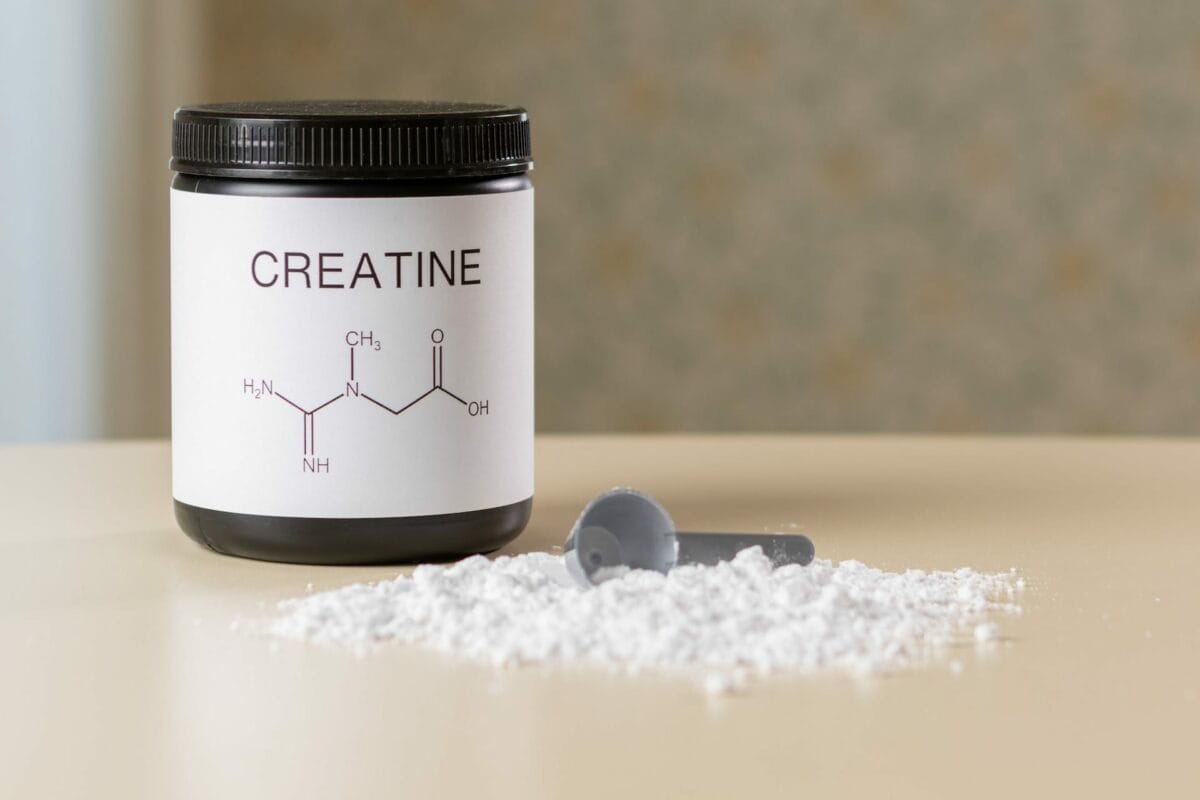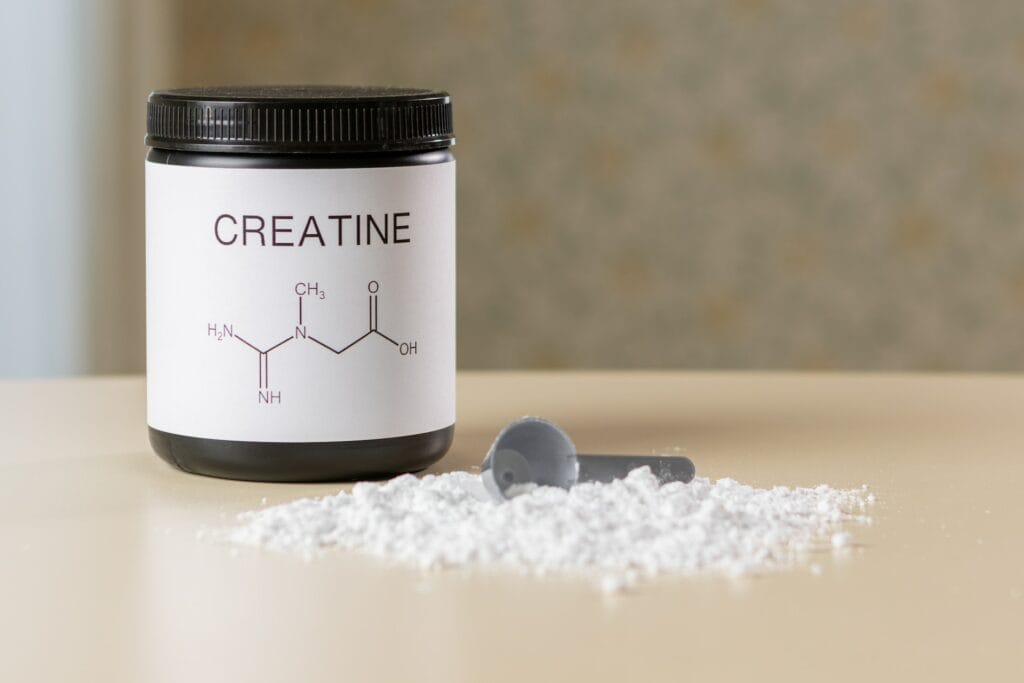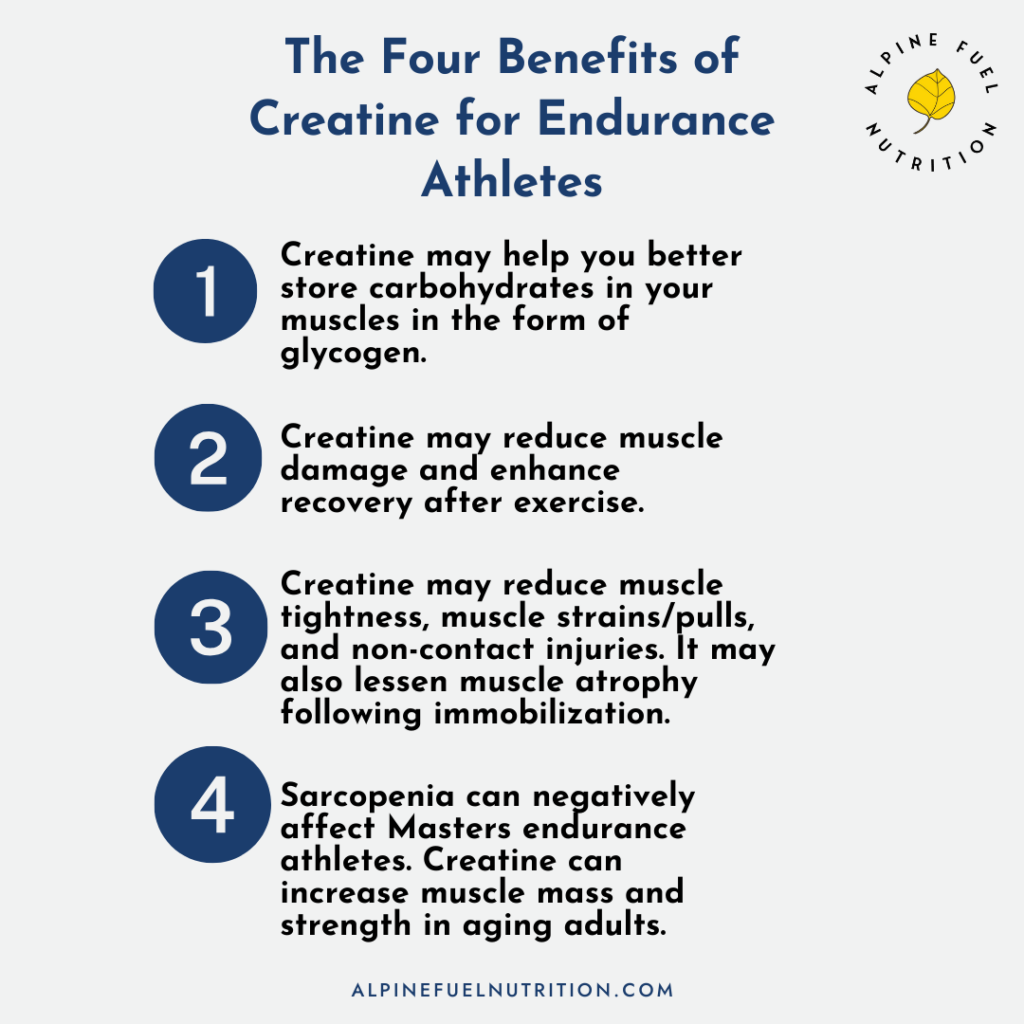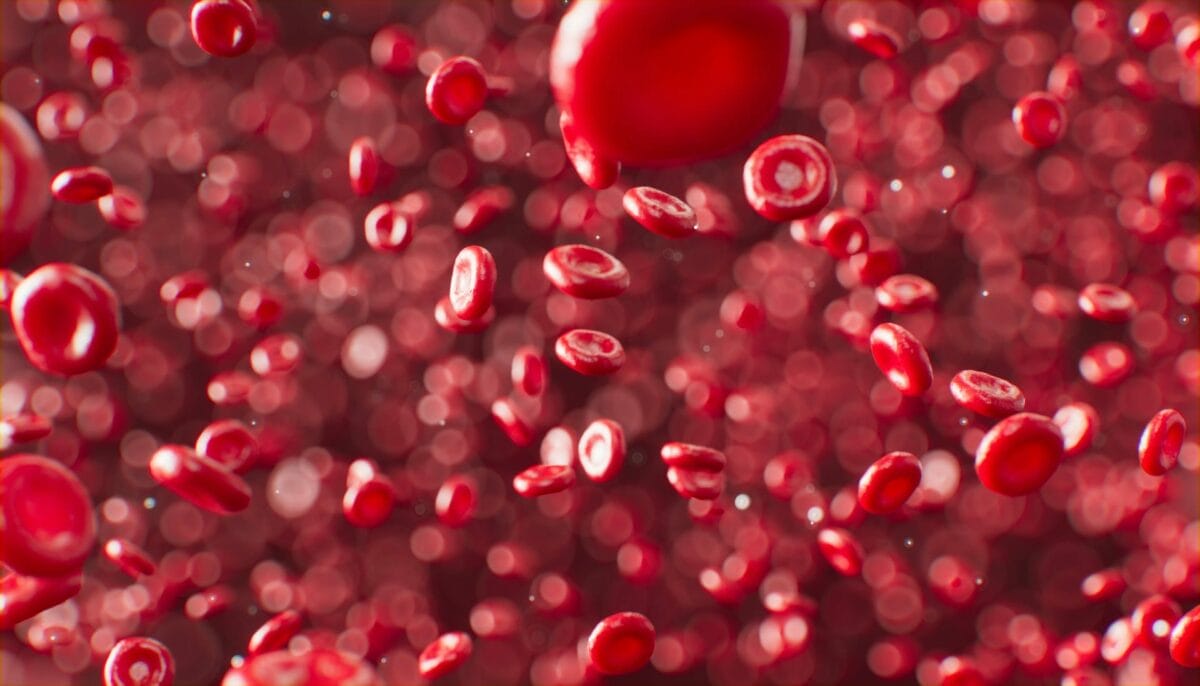

Hear the word “creatine,” and you probably envision bodybuilders grunting and lifting heavy weights in a gym, then downing a protein shake with creatine in a shaker bottle afterward. Sorry, bodybuilders, I have nothing against you; this is just the image that pops up in my mind! 😄
While creatine is stereotypically considered a supplement for bodybuilders, a rapidly growing body of evidence indicates that it can be helpful to a wide range of athletes. In fact, studies show it may offer powerful benefits for endurance athletes!
Read on to learn about the benefits of creatine for endurance athletes and how to determine whether you should incorporate this supplement into your sports nutrition routine.
Please note that I am an affiliate for some of the products I’ve linked to in this post. If you click the link here and make a purchase, I may earn a commission at no extra cost to you.

Creatine is one of the most well-studied supplements on the planet. (Source)
It is a non-protein amino acid naturally produced in the body and found in foods, mainly animal proteins such as red meat and seafood. The majority of the body’s creatine is located in skeletal muscle. Smaller amounts are found in the brain and, in men, within the testes. (Source)
What are the main functions of creatine in the body? Inside the body, creatine compounds with a naturally occurring chemical compound called a phosphoryl group to form phosphocreatine, catalyzed by the enzyme creatine kinase. Phosphocreatine is used to replenish energy in the body. This system is called the “phosphagen system.”
Your body takes the energy “currency” ATP and breaks it into ADP, releasing a free phosphoryl group. The energy released when the phosphoryl groups are “broken” off fuels metabolic activity. Similarly, when your body breaks down phosphocreatine (creatine bound to a phosphoryl group), the phosphoryl group is released, and energy is generated.
The phosphagen system is the body’s most rapid and short-lived energy-generating system. Therefore, this system primarily supplies energy during high-intensity, short-duration exercises like sprinting.
The phosphocreatine/creatine kinase system also manages mitochondrial function (mitochondria are the energy “powerhouses” of your cells that generate energy), serving as an essential regulator of metabolism. It even offers antioxidant effects that protect mitochondria from damaging oxidative stress. (Source)
Finally, creatine also facilitates the development and maintenance of lean body mass. This is why it is beloved by bodybuilders and weightlifters! (Source)
Bodybuilders have long used creatine because it can increase muscle mass in response to resistance training. High-intensity athletes like hockey and soccer players have also utilized creatine. However, creatine may also have applications beyond these two areas of sport.
While the research on creatine for endurance athletes is still in its infancy, emerging research suggests it may help endurance athletes. The benefits of creatine for endurance athletes aren’t primarily centered on energy generation. Instead, creatine may assist endurance athletes in the following ways:

Some athletes are concerned that creatine will make them “bulk up” and gain weight. Creatine can indeed cause you to gain a couple of lbs; however, studies suggest this is simply because creatine promotes intracellular water retention – water retention within your cells – which is good as it can facilitate hydration and reduce heat sensitivity during exercise. (Source)
Some endurance athletes worry that the excess water weight (which is relatively minor) from creatine may slow them down. However, I have not found this to be the case in practice.
To be clear, creatine is not a magic bullet for athletes. Creatine will be of little use if you are under-eating, eating a junk food-filled diet, or are deficient in specific nutrients. However, if your nutrition foundation is dialed in, creatine may be a helpful addition to your nutrition plan.
If you suspect your nutrition foundation has a few cracks and needs attention, I can help! Learn more about my sports nutrition services here!
Some athletes have heard rumors that creatine is unsafe or that it will even cause kidney damage. While these rumors unfortunately continue to float around, abundant research shows that creatine is very safe. The exceptions are that if you have pre-existing kidney dysfunction, creatine may not be suitable for you. Always consult your doctor before taking any supplement, including creatine.
The most studied form of creatine is creatine monohydrate. While there are other forms of supplemental creatine on the market, they have yet to be researched as thoroughly as creatine monohydrate, and they only appear to offer benefits beyond what creatine monohydrate offers.
So, how does one go about supplementing with creatine?
The old recommendation for creatine supplementation was to go through a “loading phase” in which a high dose of creatine is taken daily for a specific period to saturate the body’s creatine stores.
A typical creatine loading protocol involves consuming approximately 0.3 grams/kg/day of creatine monohydrate for at least 3 days, followed by 3–5 g/d to maintain elevated stores. (Source)
Creatine loading can cause gastrointestinal distress and bloating for some people. Furthermore, recent research indicates that creatine loading isn’t necessary to obtain the benefits of this nutrient. If desired, you can take a lower dose of creatine monohydrate, such as 2–3 g/day. This will increase muscle creatine stores over a 3–4 week period.
Importantly, because creatine is only found in animal proteins (meat, fish, poultry), endurance athletes who are vegan or vegetarian (who eat diets that are inherently low or completely lacking in creatine) should particularly consider incorporating supplemental creatine into their diets. (Source)
Always consult with your healthcare provider before taking any supplement, including creatine.
Move over bodybuilders and weight lifters – creatine isn’t just for you! Endurance athletes may also benefit from creatine because it supports glycogen synthesis, reduces muscle damage, enhances recovery after exercise, and protects against and facilitates recovery from injuries.
While you can consume creatine through animal proteins (this is one reason I’m a big proponent of an omnivorous diet for athletes!), supplementation will give you the most bang for your buck regarding glycogen loading and exercise recovery.
Are you an endurance athlete who has tried creatine? What has your experience been like? Let me know in the comments!
If you are tired of DIYing your nutrition plan and want professional guidance, I can help! Schedule a complimentary discovery call to learn more about my nutrition services that can help you optimize your health and performance as an active individual!
The content provided on this nutrition blog is intended for informational and educational purposes only. It is not a substitute for professional medical advice, diagnosis, or treatment. Always seek the advice of your physician or other qualified health provider with any questions you may have regarding a medical condition. Never disregard professional medical advice or delay seeking it because of something you have read on this blog.
The information and recommendations presented here are based on general nutrition principles and may not be suitable for everyone. Individual dietary needs and health concerns vary; what works for one person may not be appropriate for another.
I make every effort to provide accurate and up-to-date information, but the field of nutrition is constantly evolving, and new research may impact dietary recommendations. Therefore, I cannot guarantee the accuracy or completeness of the information presented on this blog.
If you have specific dietary or health concerns, please consult a qualified nutritionist or another healthcare professional for personalized guidance.
I empower others through nutrition to conquer their mountain adventures, drawing from my own experiences.
With a background in Biomedical Science and an M.S. in Human Nutrition, I’m a Certified Nutrition Specialist and Licensed Dietitian Nutritionist. My journey in functional medicine has equipped me to work alongside athletes and tackle complex health cases. As a passionate trail runner, backcountry skier, and backpacker, I strive to support others on their paths to peak performance and well-being.









Sign up for updates that come right to your inbox.